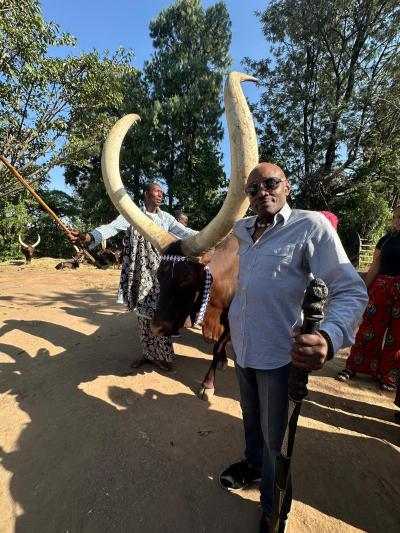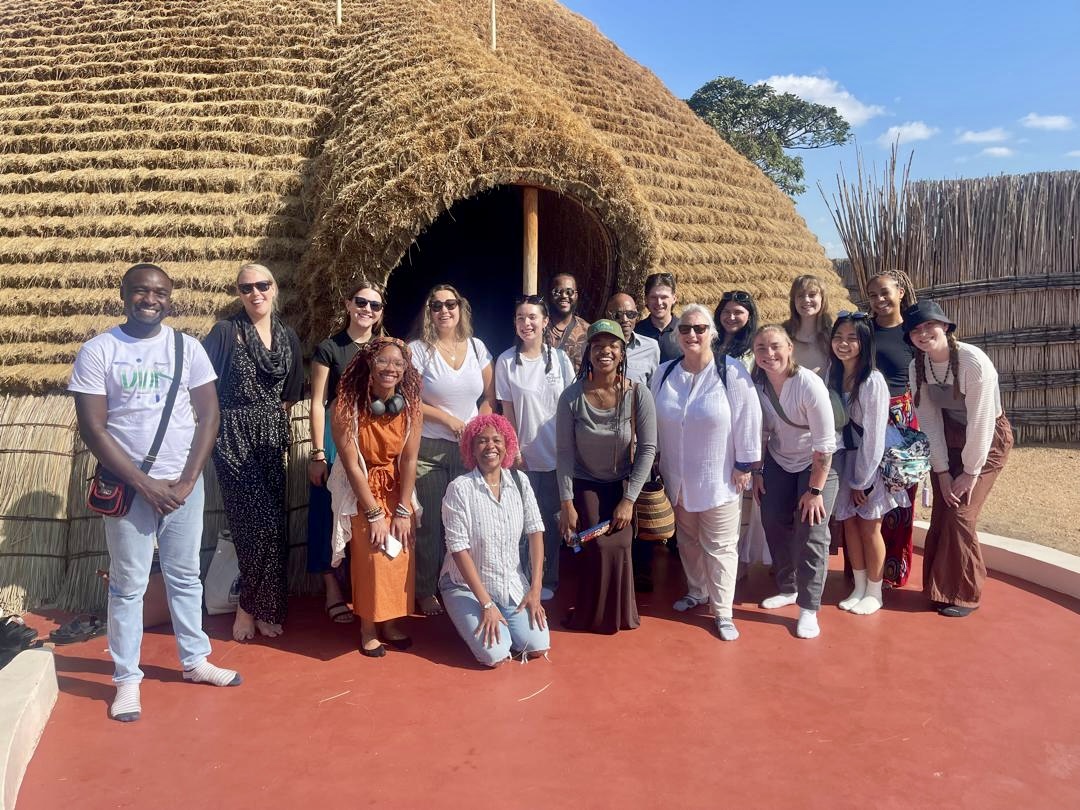The Genocide and Its Aftermath in Rwanda Program, taught by Associate Professor of Sociology Hollie Nyseth Nzitatira, takes Ohio State students to Rwanda every summer. During the three-week trip, Dr. Nyseth Nzitatira teaches the students about the genocide that occurred in Rwanda in 1994, as well as post-genocide recovery. She also invites numerous guests to speak with the class, including but not limited to survivors, perpetrators and people who rescued others during the genocide. Students on the program travel around the country, visiting memorial sites and mass graves. They also have the opportunity to stay with a homestay family to learn about Rwandan culture and to go on a safari. The Department of Sociology provides scholarships for students attending the program, and we asked two recipients about their experiences.

Sidney Williams is proud to hold the record for the oldest student on this education abroad program! The 73-year-old was very excited for the opportunity to travel abroad to Rwanda, something he did not think he would be able to do during his academic career. He has always had a passion for trying to curb violence in marginalized communities, and as someone over 70, he believes he holds a record for being one of the more senior education abroad participants at Ohio State.
Sidney remembers the impact of the memorial sites and testimonies of the survivors of the genocide had on him. They served as tangible proof of the horrors that occurred and deepened his understanding of the genocide.
As he reflects on his experience, the “stand out point” for Sidney was his welcoming host family who showed him around Kigali and taught him the historical customs of the country. They have still kept in contact after his visit. Sidney hopes that people are inspired and encouraged to seek out scholarships and other opportunities for them to participate in experiences that they had counted themselves out of.
Maya Ekechi similarly recalls the trip as an incredibly impactful experience. The most notable moment for Maya was hearing directly from the Rwandan people who lived through the genocide. She said, “Their accounts of tragedy, grief and survival were heartbreaking, but their strength in sharing them was incredibly inspiring.” Their stories helped to make what she learned in class more concrete than a textbook could have. These heavy accounts were reinforced by the visits to the mass grave sites and memorial sites that honored the many who were murdered during the genocide, with specific areas recognizing the children who died. This reinforced the importance of remembering such atrocities for Maya.
The trip also included a lot of joyful moments for Maya, particularly moments with her homestay family of two parents and four children. Despite a language barrier, Maya was able to connect with them through games and activities. They took her to an African Basketball League game and showed her around the local marketplace. She hopes to visit them again someday.
“This trip was not just about studying history; it was about witnessing human resilience, learning about the importance of memory, building meaningful connections, and witnessing the beauty of Rwanda and Rwandan culture.”

